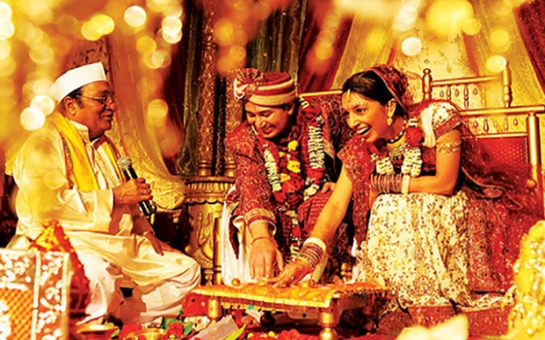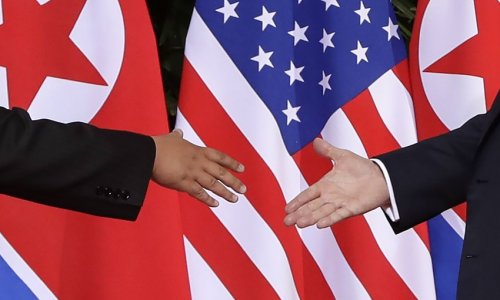Veenita spent the last few years building a lucrative career in finance in Delhi, and she’s ready to settle down and find a husband. The pretty 32-year-old scours matrimonial sites, and she’s happy to meet suitors her parents suggest. But she’s incredibly cautious.“People lie all the time these days. Both boys and girls,” she says. “It’s risky to trust anyone.”In the past few years, Veenita, who asked that we not use here real name, has witnessed many divorces among her circle of friends. Girlfriends who entered into arranged marriages often tell her horror stories, she says, about how their husbands turned out to be different from how they portrayed themselves. One of her friends discovered that her husband was still dating an old girlfriend. Another married a guy who turned out to be gay and continued to have affairs with other men. And she had been warned about guys who lied about their educational qualifications. “When you are reading profiles you can make out that people are exaggerating their degrees,” she says.As a successful professional, Veenita is clear that she wants her husband to earn as much, if not more, than she does. And she wants to be sure that he actually makes what he claims he does. “These days its hard to find men who live up to your expectations,” she says.So at the start of her quest to find a husband, Veenita hired a pre-matrimonial detective to spy on her suitors.On one recent lunch date, she met a 36-year-old guy recommended by friends of her parents who claimed to be a wealthy nonsmoker and property owner in Delhi. Before her first meeting with the man, the detective prepped her on subtle techniques to assess his character. One piece of advice was to notice how the man spoke to the waiter. Another tip was to keep the meeting going for at least three hours, so if he was a chain smoker, he would have to sneak out for a cigarette.The guy, who was handsome, didn’t slink away for a puff during their long lunch at an upscale restaurant in the city—but he lit up a few minutes after leaving the restaurant. What he didn’t know was that an operative for the detective agency had followed him from the restaurant.The detective also discovered that the properties the man claimed to own actually belonged to his parents.Veenita blew him off. She didn’t want to marry a smoker or someone who lacked significant economic assets. But the real deal breaker, she says, was obviously the fact that the man had lied. Because she couldn’t call him out without exposing her own spying secret, she made up a story about the family priest advising against the union because their stars didn’t align.She didn’t care too much about losing the guy. After all, she says, there was no love lost between them. And finding the right man would involve meeting a fair share of random guys and exposing their lies.Over the past few years, pre-matrimonial investigations have become increasingly common in India, a country that has experienced a massive surge of wealth and materialism, as well as rapidly changing social norms, in the span of a decade. Thousands of women have joined the workforce just as trust in the traditional path toward marriage has eroded.Not too long ago, marriages were arranged through relatives or mutual friends, who could vouch for the potential bride and groom. In recent years, however, large joint families have broken down into nuclear families, young adults are moving around to different cities for work and living alone, and the increasing number of women becoming financially independent are looking for their own spouses.Compounding the shift, growing Internet access has led to more and more Indians interacting on social networking sites like Facebook and matrimonial sites like Shaadi.com, which claims to have more than 10 million members, JeevanSathi.com, with 5.6 million profiles, and BharatMatrimony.com, with 2.5 million users.Recently, the Internet and Mobile Association of India reported that the number of profiles uploaded to matrimonial portals has grown by 124 percent since January 2013, with almost 2 million new uploads each month.The ongoing digital, social and economic upheaval in India has placed suspicion and materialism at the heart of matrimony more than ever before. In a country where marriage is still seen as sacrosanct—and whose people scoff at the high divorce rate of Western countries—those who deal with marriage investigations describe a shocking scenario when it comes to modern couples and commitment, especially for the middle class living in big cities.Sixty percent of marriages, one detective estimates, now end up in separation or a court dispute within two years, and 30 percent are unhappy at home but have to conceal it. While no concrete figures for the divorce rate in India are available, for the past decade most media reports have described it as skyrocketing, with one marriage expert estimating that since 2005, the divorce rate has more than doubled. (It would be even higher, he says, if court procedures were more efficient and judges operating under a traditional mindset weren’t so slow in granting them.)Most investigations concern arranged marriages, where the prospective couple and their parents don’t know much about one another. With more young people finding partners on their own, many concerned parents secretly approach detectives to check up on their children. But it’s actually the prospective bride or groom, detectives say, who initiate the majority of investigations.Rahul Gupta, head of Secret Watch Detectives in Delhi, says he had two cases of this kind in the years after 1999, when he established his firm. Now he gets more than 20 cases per month. Rajiv Sharma, who runs Delhi’s Ascon Detectives Network, has seen a similar spike in pre-matrimonial investigations in the past three years, with his agency now getting at least 90 cases every month.Sharma emphasizes that his agency assures clients complete privacy, so that the process doesn’t jeopardize any potential alliance. Clients are also advised never to reveal to their spouses after marriage that such an investigation was ever carried out.Detectives interviewed insist that when it comes to marriage, many people and families blatantly lie about different aspect of their lives—personal habits, past relationships, finances—in order to secure partners. And while spying isn’t exactly honest, they say, it’s often necessary to avoid getting duped in today’s marriage market.In some cases, Gupta is hired solely to find out how wealthy a family is. And he has seen many people break off the match if the money isn’t there. But in a full 60 percent of cases, Gupta says, he finds that the suitors lied in some way, and he’s forced to deem them “not suitable” in his final report. “So here the problem is not whether the person smokes, had a past affair or earns too little. It’s about lying,” he says. “You can’t start a relationship by lying.”While men lie about their income, women often lie about previous boyfriends. Though past relationships aren’t the deal breaker they once were in India, they’re still frowned upon, and most people avoid the risk of even mentioning them. Women today often meet suitors because their parents force them to, then go through the motions while continuing with outside relationships.Gupta says that he has seen cases where the girl’s real boyfriend drops her off to meet a potential suitor for a date, then picks her up later for dinner.Investigators also get calls from Indians living abroad or Americans of Indian origin whose marriages have been arranged to girls back home. The queries mostly come from well-off men who want to know if their prospective bride is just out to get their money or a visa.Gupta’s agency charges anywhere between $500 to $8,000, depending on what the case calls for. A basic package includes finding out about habits like smoking and drinking, financial assets like property and cars, or any concealed health problems. The deluxe package includes finding out whether a suitor is secretly gay or lesbian. Demand for that service has picked up in the past few years, Gupta says. And in some cases, the suspicions have turned out to be true.To determine the sexual orientation of a suitor, Gupta will send an agent of the same sex to entice the mark and see whether or not he or she bites. They employ the same honey trap to find out whether a straight suitor is prone to sleeping around. (For Gupta, the most shocking cases have involved subjects who turned out to be gay or already married).Investigations involve following the subjects, meeting them under several guises to extract information (and recording the conversations), and meeting their work colleagues and friends from high school and college to dig up any past history of relationships. A case can take anywhere from two weeks to four months. Gupta, whose agency has 10 investigators, usually assigns two people to each case.Investigators say that none of these activities are illegal. Except for a code of conduct set by the Association of Private Detectives & Investigator in India, there are no government regulations to monitor these agencies in the country. The Private Detective Agencies (Regulation) Bill, 2007, is still pending in the Indian parliament.The most recent trend, investigators say, are clients who want them to find out the character of potential mothers-in-law. For this, female agents go to their homes on the pretext of using the phone or making a query about renting a room. They try to speak with the prospective mother-in-law to see how she behaves and assess whether there is a risk of her being an aggressive control freak. They also speak with drivers, cooks and domestic help to evaluate her demeanor.Gupta says that a large number of marriages are breaking up because the bride’s mother interferes in the relationship too much. The growing ranks of wives with equally good or even better education and salaries than their husbands are being encouraged by their moms to look for better options.“Mother-in-laws on both sides can be a pain,” Gupta says. “But at the end of the day, it’s the couple that makes or breaks a marriage. I’m just happy to help.”(vocativ.com)ANN.Az
Courtship now comes with private investigator
World
11:00 | 18.11.2013

Courtship now comes with private investigator
Marriage detectives are the new prenup, as more singles turn to PIs to spy on potential suitors.
Follow us !










